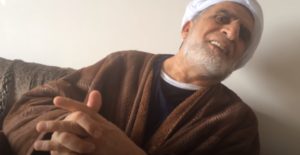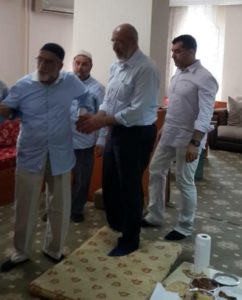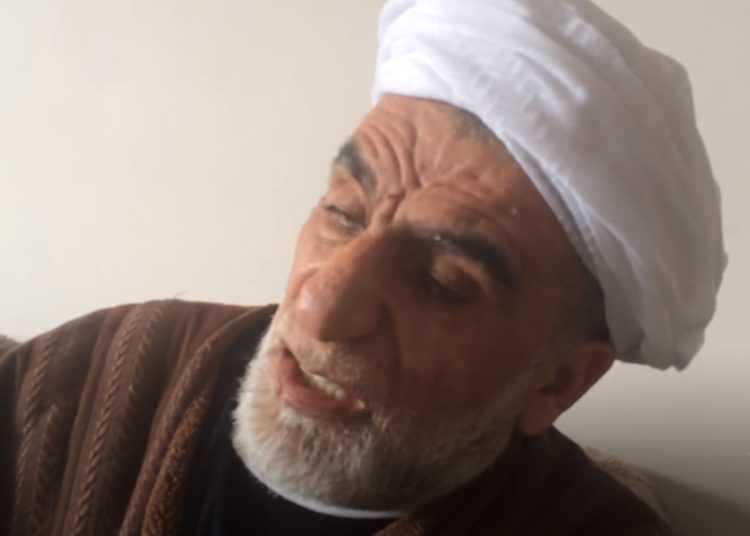Abdullah Bozkurt/Stockholm
Wiretaps and emails obtained from a suspect in a counterterrorism investigation into a government-backed Turkish jihadist group revealed how it was connected to al-Qaeda and the Taliban in Afghanistan and Pakistan. The group sent Turkish fighters and money to support the jihadist campaign there.
The group, called Tahşiyeciler in Turkish, or Molla Muhammetçiler, was a radical jihadist group led by Mehmet Doğan (aka Mullah Muhammed el-Kesri), who openly declared his admiration for Osama bin Laden and called for armed jihad in Turkey. The group escaped the grip of the criminal justice system in Turkey thanks to the intervention of the Islamist government of President Recep Tayyip Erdoğan, who publicly defended the group and secured the release of its members from prison.
The profile of a key suspect in the case was enough to reveal a terrifying picture of how aspiring jihadist were picked in Turkey by operatives of Tahşiyeciler and sent to fight in jihadist battles waged by al-Qaeda and the Taliban in Afghanistan and Pakistan. Some were killed in the clashes, some returned and others became suicide bombers. The group ran jihadist websites, openly promoting the al-Qaeda ideology and praising bin Laden and other notorious jihadist leaders and ideologues.
The police, under orders from the prosecutor’s office and with an authorization from a judge, wiretapped the phone of a 38-year-old suspect named Mehmet Nuri Ataç and monitored his phone, email and chat communications. A transcript of wiretaps and emails showed how Ataç operated under direct orders from Mullah Muhammed, enlisted himself to fight abroad for a jihadist cause and wanted to be a martyr by becoming a suicide bomber.
Transcript of wiretaps in the police investigation file shows Tahşiyeciler recruited jihadists to deploy to Afghanistan to fight along with al-Qaeda:
Hundreds of wiretaps that were collected in the course of the investigation portray a picture that Tahşiyeciler operated as part of global al-Qaeda, raised funds and sent Turkish fighters to join the conflict in Afghanistan and Pakistan. Police investigators concluded that “Its activities to recruit to people to participate in terrorist acts in the so-called jihadi zone, the way it organizes itself, its purposes and acts which differ significantly from known terrorist organizations are considered to indicate that they are operating as part of the al-Qaeda terrorist organization.”
In one wiretap Ataç was recorded as telling a Turkish man named Çetin Aşkın, code-named Hamza, how he was making preparations to go to Afghanistan after talking to an emir who explained to him that $1,800 in cash would be enough for travel and settling in jihadist regions. The emir said he could send Ataç to that region within a week.
His handler was a man named Orhan Özer, aka Muhtar, who had already sent Ataç’s friends Sedat Zorba and İbrahim Gümüş to fight in Afghanistan on October 8, 2009. Özer was based in Istanbul and coordinating the trafficking of Turkish jihadists to Afghanistan and Pakistan. He was also handling the money to be transferred to al-Qaeda through couriers. Özer went to Iran in 2005 and received a religious indoctrination for 11 months there. Then he moved to Pakistan, where he was detained in 2006 for alleged links to al-Qaeda and deported to Turkey.

In an intercepted email message dated January 17, 2010 Ataç was communicating with an unidentified man about how he would travel to Afghanistan through Iran in 20 days. He said he would purchase a Kanas sniper rifle once he got there and would later help another person join al-Qaeda. He cautioned that the trafficking of fighters must be kept strictly confidential and not be revealed even to family members before making the trip to Afghanistan.
In another wiretap with Aşkın, Ataç complained about the pressure on jihadists by the Pakistani army and praised a suicide attack that had recently killed 130 people. He expressed the need for more fighters to be deployed to that region and revealed that seven Turkish jihadists were killed in clashes near the Pakistani border and that four senior Turkish jihadist commanders were captured. Ataç added that he was not able to gather information about the status of his friends Zorba and Gümüş, lamenting problems in the channels of communication.
On another occasion the two talked about the Taliban in Afghanistan and how it had bombed people who wanted to cast their votes in elections and maimed voters by cutting off their fingers. They were jubilant over what they described as a victory by the Taliban in capturing some neighborhoods. Aşkın expressed his urge to kill many infidels by joining the militants in Afghanistan.
Transcript of wiretaps shows Tahşiyeciler raised cash for al-Qaeda:
In another wiretap Ataç talked to a man identified only by the first name of Mustafa and told him that nine Turkish fighters had recently been killed. The two mentioned the urgent need to send funds to Afghanistan for jihadists and discussed ways to collect more money in Turkey. The group raised funds for al-Qaeda in Afghanistan and the money collected in various provinces was sent to Istanbul for delivery to jihadist regions via courier rather than bank transfer.
Ataç and his associate Mustafa Serkan Saraç were heard bragging about the attacks perpetrated by jihadist groups in Afghanistan and Pakistan in another wiretap. The two talked about how two American soldiers were captured and killed. Ataç noted that $2,000 would be enough to make a trip there, but it would be preferable if one had $3,000 because a better weapon could be purchased with the extra cash. On the phone Saraç recalled a confidential conversation with an associate who revealed that an imminent attack was being planned in Turkey. Ataç warned him immediately and asked him to not talk about it on the phone.
More wiretaps about raising cash for al-Qaeda:
Bin Ladin, the late leader of al-Qaeda, was often a favored topic in the phone conversations between Ataç and Aşkın. In Ataç’s emails Omar Shafik Hammami, aka Abu Mansoor al-Amriki, a US citizen who was a leader in the Somali jihadist group al-Shabaab, was revered and his activities were shared to motivate militants. Hammami was put on the FBI’s Most Wanted Terrorists list, and a federal warrant for his arrest was issued in 2007. He was killed in 2013.
The group was also impacted by the teachings of Abdullah Yusuf Azzam, a Palestinian cleric and founding member of al-Qaeda. Azzam, described as the “Father of Global Jihad,” reached out to Turkish youth through translated works such as the book titled “Lovers of the Paradise Maidens” (Hurilerin Aşıkları in Turkish), which memorialized the lives of more than 150 Mujahideen who died in the Soviet–Afghan jihad. He was killed in 1989.
Iraqi territory is another place where the Mullah Muhammed group was interested in promoting its jihadist campaign. In one wiretap Ataç was recorded talking about a member of Tahşiyeciler who killed himself in a suicide bombing in Iraq and said the trafficking of Turkish jihadists was kept secret within the group and known only to two or three people. The conversation focused on the teachings of Mullah Muhammed and how he was helping motivate Turks for armed jihad.

The group closely followed elifmedya.com and cihaderi.net to keep abreast of developments in jihadist regions and disseminated email messages through the Takva Forum and Şehadet Zamani websites.
The intercepted email messages also exposed possible hit lists compiled by Tahşiyeciler for future terrorist attacks. The group was interested in businesspeople from the Sabataycılar (crypto Jews, or a secret Jewish community that follows Sabbatai Sevi and pretends to be Muslim) and other groups. It even collected names from tombstones in the Bülbül Deresi Cemetery where Jews were believed to have been buried.
When the police detained Tahşiyeciler leader Mullah Muhammed and his associates including Ataç in January 2010, they discovered three hand grenades, one smoke bomb, seven handguns, 18 hunting rifles, electronic parts for explosives, knives and a large cache of ammunition in the homes of the suspects.
Transcript of wiretaps shows Tahşiyeciler tried to keep the trafficking of fighters to al-Qaeda secret within the group, known only to two or three people:
The investigation revealed how Mullah Muhammed had asked his followers to build bombs and mortars in their homes, urged the decapitation of Americans, claiming that the religion allowed such practices. “I’m telling you to take up your guns and kill them,” he said in recorded sermons, adding, “If the sword is not used, then this is not Islam.” According to Mullah, all Muslims were obligated to respond to then-al-Qaeda leader Osama bin Laden’s armed fight.
Although Mullah Muhammed and his associates were indicted and tried, Erdoğan started defending the group in 2014, vouching for the radical imam. The campaign to save the indicted Mullah Muhammed was first launched by the Sabah daily, owned by Erdoğan’s family, on March 13, 2014. An article tried to portray Mullah Muhammed as a victim. The government claimed that Mullah Muhammed was framed by the Gülen movement, a group that is highly critical of Erdoğan on a range of issues from corruption to Turkey’s arming of jihadist groups in Syria and Libya.
Intercepted email messages of a Tahşiyeciler member shows the group targeted Jews and others they considered a threat to their jihadist campaign in Turkey:
In the end, Erdoğan helped secure Mullah Muhammed and his associates’ acquittal through his loyalist judges and prosecutors, launched a crackdown on journalists who criticized his radical group and even hired a lawyer to file a civil suit in the US against Muslim scholar Fethullah Gülen, who has been an outspoken critic of radical and jihadist groups, for defaming this fanatic.
The Turkish president’s lawyer Mustafa Doğan İnal defended Tahşiyeciler in court. İnal also represented controversial Saudi businessman Yasin Al-Qadi, a close friend of Erdoğan who for years was listed as an al-Qaeda financier by both the UN Security Council sanction committee and the US Treasury.
The Bakirköy 3rd High Criminal Court acquitted all suspects including Mullah Muhammed and Ataç of al-Qaeda charges on December 15, 2015. In a contradiction of past actions, the Security General Directorate (Emniyet) also issued a new report whitewashing the activities of the group.
Mullah Muhammed continues to preach freely in Turkish provinces as of the present day and is paraded on government-controlled TV networks to propagate radical views.












